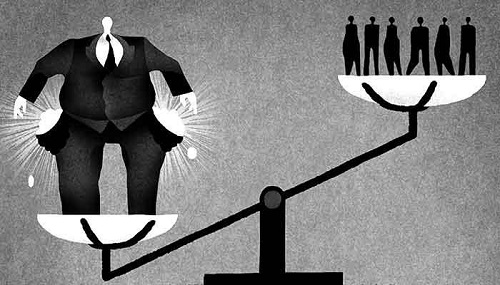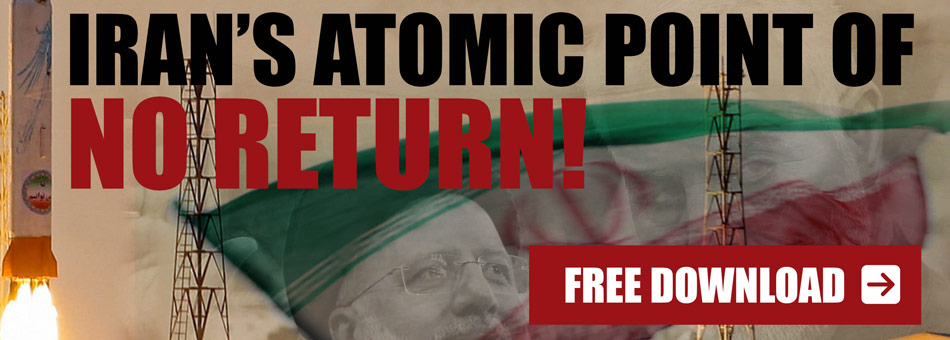This article was originally published by Wanjiru Njoya at The Mises Institute.
The BBC recently slapped a “trigger warning” on its popular 1969 series Civilization, warning that viewers may deem the series objectionable as it presents Eurocentric perspectives. The series is now deemed to be “problematic” because it tells a “European story,” focusing on the Renaissance and the Enlightenment. This is criticized by academics—for example, the classicist Mary Beard—for excluding other cultures and also for excluding women while showcasing the achievements of men in Greece, Rome, France, Italy, Germany, and Britain.
This rejection of Eurocentricity by modern academics pervades the “decolonize” movement that has swept through all scholarly disciplines across the humanities and natural sciences. The science of economics has not been spared. Economic theories that have long been associated with economic progress and civilization are also rejected. The concept of “civilization” itself is rejected on the grounds that all cultures are equal; therefore, all cultures are a form of civilization, and no civilization is superior to any other. In this worldview, there is no particular reason why economic freedom should be prioritized above any other social goal.
Economic freedom concerns the human liberty to engage in the activities necessary to sustain prosperity and civilization, as well as the institutional conditions necessary for human beings to thrive. Economic liberty is therefore subsumed within civilization itself. The two concepts are linked, and the idea that we can choose to reject economic principles while maintaining the level of economic progress to which we have become accustomed is simply wrong. Ludwig von Mises explains this in Human Action:
What is wrong with our age is precisely the widespread ignorance of the role which these policies of economic freedom played in the technical evolution of the last two hundred years. People fell prey to the fallacy that the improvement of the methods of production was contemporaneous with the policy of laissez faire only by accident.
Laissez-faire, and the principles of economic freedom, are not coincidental to Western civilization but bound together with it. Explaining this connectedness between economic freedom and civilization is a task central to economics. Mises cautions that rejecting economic freedom amounts to rejecting civilization itself:
It must be emphasized that the destiny of modern civilization as developed by the white peoples in the last two hundred years is inseparably linked with the fate of economic science. This civilization was able to spring into existence because the peoples were dominated by ideas which were the application of the teachings of economics to the problems of economic policy. It will and must perish if the nations continue to pursue the course which they entered upon under the spell of doctrines rejecting economic thinking.
This insight is also prominent in P.T. Bauer’s studies of economic development, as he highlights the importance of universal economic principles for developing countries. The principles associated with Western civilization are universal in the sense that they promote human flourishing, a point that emerges clearly from Bauer’s comparative studies of Asia and Africa. For example, Bauer shows that property rights and external trade have promoted economic development everywhere these principles have been implemented. In his discussion of developments in Asia and Africa, he observes:
What happened was in very large measure the result of the individual voluntary responses of millions of people to emerging or expanding opportunities created largely by external contacts and brought to their notice in a variety of ways, primarily through the operation of the market. . . . In my own work I was able to show that very poor illiterate people were well informed about economic conditions in distant and alien countries, and that they responded intelligently to the opportunities they perceived.
A corollary of property rights and economic freedom is the principle of equality before the law, which ensures full participation in the market economy. Property rights—the rights to own property and to buy and sell property or enter into other contracts in relation to its use—vest equally in all individuals. Equality before the law is not a concept denoting equalization of the unequal, or equalization of property ownership, but a concept asserting the right to own property in the formal sense: not that everyone has property, but that everyone has the right to have property. The great economist Walter E. Williams recognized the importance of this principle in his discussion of “apartheid in camouflage”—he made the point that dismantling apartheid should not be replaced by new restrictions on economic freedom in favor of blacks because such restrictions are wrong in themselves. Such restrictions were not wrong simply because they happened to favor white people; they were wrong because they denied property rights to black people. It is equally wrong to deny property rights to white people as now attempted by various “equity” schemes. This principle, equality before the law, is also central to Western civilization. As Mises explains:
The liberal champions of equality under the law were fully aware of the fact that men are born unequal and that it is precisely their inequality that generates social cooperation and civilization. Equality under the law was in their opinion not designed to correct the inexorable facts of the universe and to make natural inequality disappear. It was, on the contrary, the device to secure for the whole of mankind the maximum of benefits it can derive from it.
The benefits of economic freedom, and of civilization, are not just for the individual heroes or titans of industry responsible for great accomplishments. Civilization is appreciated and valued by all members of society, or at least all members of society who are not riven with envy at the good fortune of others. The advantages of civilization inure to the benefit of all humanity. As Marc Sidwell writes in his defense of civilization, “Every individual also understands what it is to be a human being. Works of beauty, ambition and mastery are not obscure. They can remind all of us of our common heroic potential.”











0 Comments